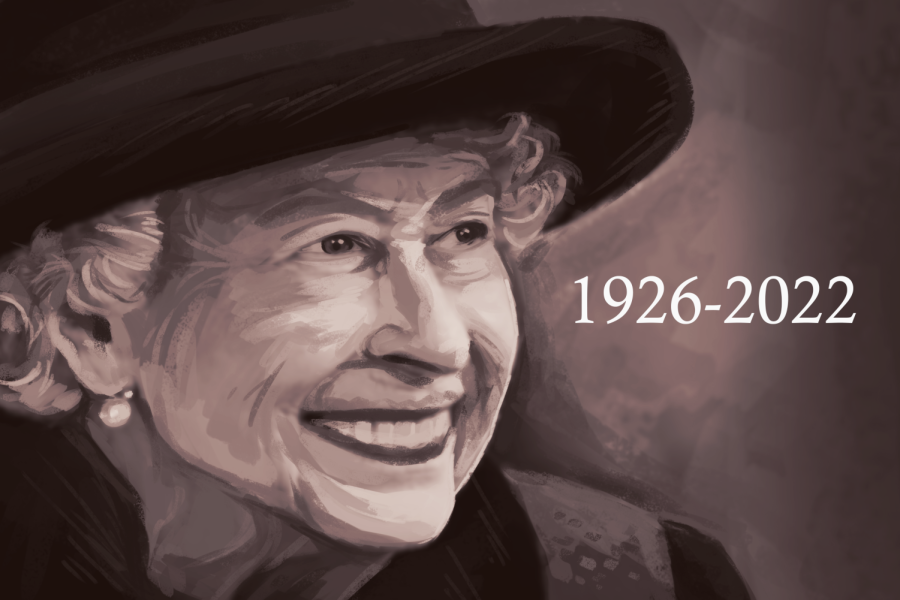“To lose a part of your culture is devastating”: students and staff reflect on the life and legacy of Queen Elizabeth II
As the world mourns her passing, Whitman students and staff reflected on the Queen’s death and legacy.
September 12, 2022
Britain’s longest-reigning monarch, Queen Elizabeth II, died on Thursday afternoon at the age of 96.
Her 70-year reign represented a period of dramatic change, as the global population tripled and the transition into the digital age revolutionized the lives of many. After her 1953 coronation — the first to be televised — the United Kingdom both joined and left the European Union, while the Good Friday Agreement ended decades of violence in Northern Ireland that erupted at the beginning of her reign.
As the world mourns her passing, Whitman students and staff reflected on the Queen’s death and legacy.
“It’s one of those things that you don’t think would ever actually happen, even though it was known her health was failing,” AP Comparative Politics teacher Andrew Sonnabend said.
Nine in ten living people were born after Queen Elizabeth II took the throne. For students like junior Louis MacPherson, who was born in Britain, the Queen was a symbol of stability and an iconic representation of his country on the world stage, he said.
“She’s part of British culture,” MacPherson said. “To lose part of your culture is devastating.”
Politicians, journalists, and foreign leaders alike knew Queen Elizabeth II for her tight upper lip — a quality that would characterize her involvement in an often-tumultuous political environment. Although she remained apolitical, the Queen was a unifying strong “figurehead” in the United Kingdom, Sonnabend said.
“[The British looked] to the Queen for a figure that, in times of crisis, could unify the country, that could bring calm,” said Sonnabend, who has a cardboard cutout of the Queen in his classroom. “I think that she was good at that. She showed, yes, the royal family has their flaws, but she did show that there was this overarching national figure that was almost a mother figure for the country.”
French teacher Helen Harris was also born in England and said that she appreciates the centuries-old tradition of the monarchy. For Harris, the Queen was more than the throne she sat on, she said.
“She’s on the coins, money and on the postal stamp,” Harris said. “So it’s just odd and hard to wrap your head around how it’s all going to change. ‘Long live the King’ is just odd.”
News of the Queen’s death first reached students and staff at the end of seventh period on Thursday. As students filled the hallways between classes, some learned of her passing from instant news notifications, while others found out from their friends. One British student didn’t believe their peers until they read about it online, they said.
“I was just shocked,” said the student, who asked to remain anonymous. “The queen is just a very permanent figure [and] it’s weird that she is gone. It doesn’t feel right. I still haven’t accepted it. ”
The Queen’s son, King Charles III, ascended to the throne immediately following the death of his mother. For many students and staff, however, the late Queen will continue to represent the monarchy.
“This is a monarch who ruled for 70 years, so that’s just nuts,” Sonnabend said. “Not only will she always have a place in my classroom but also a place in my heart.”










